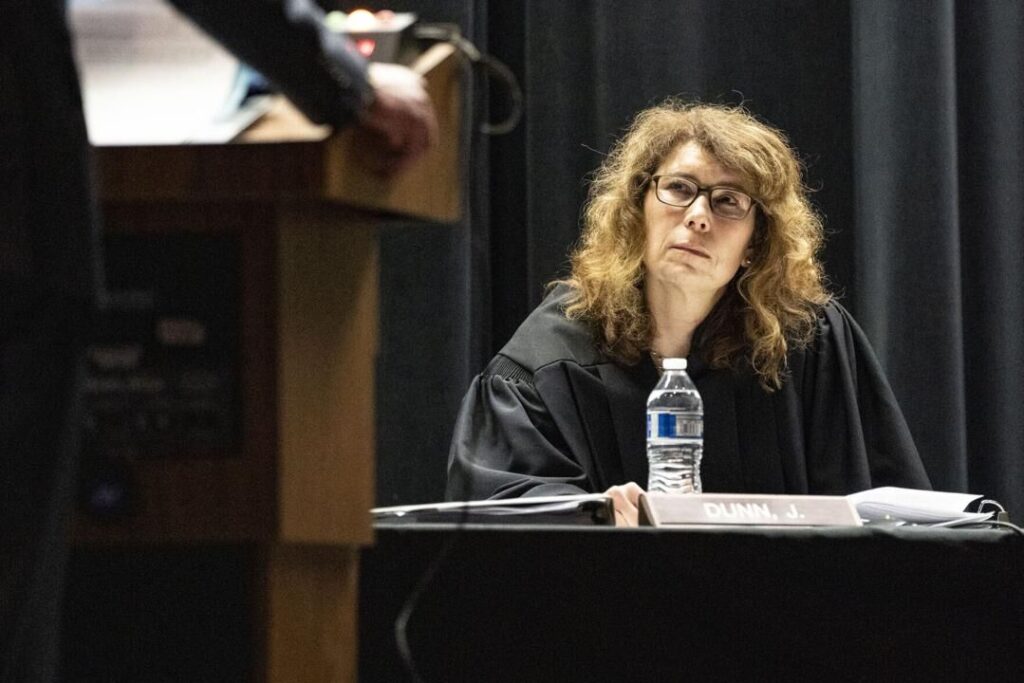10th Circuit warns employers against discriminatory DEI programming
The federal appeals court based in Denver sent up a warning flare to employers on Monday that diversity, equity and inclusion efforts can cross the line into illegal workplace discrimination, deeming certain race-conscious programming “troubling” and the product of “ideological messaging.”
At the same time, a three-judge panel of the U.S. Court of Appeals for the 10th Circuit agreed that ex-prison employee Joshua F. Young could not proceed with his hostile work environment claim against the state. Although Young was offended at having to take a training module highlighting concepts like “White fragility” and “privilege,” the panel concluded his single encounter with the materials did not violate federal civil rights law.
Judge Timothy M. Tymkovich, a George W. Bush appointee, suggested in the majority opinion that “ongoing” equity training of the type Young experienced, known as DEI or EDI for short, could create an abusive enough environment to sustain a worker’s civil rights claim.
“If not already at the destination, this type of race-based rhetoric is well on the way to arriving at objectively and subjectively harassing messaging,” wrote Tymkovich for himself and Judge Joel M. Carson III, a Donald Trump appointee. “It could encourage racial preferences in hiring, firing, and promotion decisions. Moreover, employees who object to these types of messages risk being individually targeted for discriminatory treatment.”
Judge Scott M. Matheson Jr., an appointee of Barack Obama, agreed with the ultimate conclusion that Young’s onetime experience with DEI training did not amount to a hostile work environment. However, he wrote separately to distance himself from Tymkovich’s extensive critiques of workplace equity programming.
“I do not think the court otherwise needs to comment on the EDI training or the potential for future legal challenges to it or other EDI programs,” Matheson observed, calling the majority’s commentary “unnecessary.”
Advocates for DEI training acknowledged such programming can be problematic when executed improperly, and it is important that the trainers themselves be qualified.
“I just would hate to see this be used as an excuse for anybody to say, ‘You know what? We’re not going to offer any DEI training because we don’t want to get in trouble,'” said Karen Steinhauser, an attorney and law professor who leads trainings on implicit bias. “I really believe if it’s done by appropriate people in an appropriate manner, then it could be useful.”
William E. Trachman of the Mountain States Legal Foundation, who represented Young, did not say whether his client was opposed to all DEI trainings, but maintained the programming provided to Colorado Department of Corrections employees was improper.
“While we’re disappointed in the bottom-line result, we’re pleased that the court recognized the inherent problems with Colorado’s racially discriminatory training,” he said. “We hope that this guidance from the 10th Circuit is sufficient for Colorado to understand the severe security risks that their training presents in the prison context, and to change its employee training to avoid posing a racially hostile work environment in all contexts.”
Young, a White man from Colorado Springs, alleged he was forced to resign from his job as a sergeant in the corrections department after suffering “severe and pervasive” discrimination from a DEI training module. The materials the department made available to employees included:
• a glossary of terms such as “white fragility” and “BIPOC“
• a video about redlining, which is a historical form of housing discrimination
• recommended books about “anti-racism” and racial identity groups
“The fact that his non-white colleagues were viewing the same content, and absorbing the idea that he — as a white individual — was contributing toward racism and their oppression, was too much for him,” argued Young’s attorneys. “Mr. Young felt harassed and intimidated to the point that he no longer felt comfortable working for the Department of Corrections, and ultimately resigned.”

Young’s lawsuit claimed the corrections department was liable for violating federal civil rights law by creating a hostile work environment.
Last February, U.S. District Court Judge Nina Y. Wang dismissed the lawsuit because Young failed to connect the onetime, online training module to a change in his work environment.
“Without any factual allegations detailing how the CDOC’s trainings affected Mr. Young’s workplace or ‘created a culture of suspicion and distrust’ within the CDOC,” she wrote, “Plaintiff’s allegations are insufficient to plausibly allege that the trainings affected the workplace ‘so substantially as to make it intolerable’ for Plaintiff to continue his employment.”
While Young’s case was on appeal to the 10th Circuit, the U.S. Supreme Court’s conservative majority limited the use of race-conscious university admissions. Colorado Attorney General Phil Weiser responded by issuing formal guidance about the continued legality of DEI education in the workplace, recommending that employers “carefully monitor their policies to ensure that they are not inadvertently disadvantaging protected classes of employees.”
The 10th Circuit ultimately agreed with Wang that Young’s failure to allege how the DEI training module affected his actual experience at work was fatal to his claims. However, Tymkovich warned the “racial subject matter and ideological messaging” in Young’s training was “troubling.”
“The rhetoric of these programs sets the stage for actionable misconduct by organizations that employ them,” he wrote in the March 11 opinion. Tymkovich added that the state’s race-conscious training materials resemble “the racist views” in other cases where Black employees were subjected to the N-word and lynching references at work.
A spokesperson for the Colorado Department of Public Health and Environment, which supplied the training materials at issue in Young’s lawsuit, said it was committed to providing training that is “inclusive and welcoming to all. We have evolved our training and professional development resources in recent years to meet the needs of our workforce.”
Kathleen B. Nalty, an attorney who offers diversity and unconscious bias trainings, said Young’s allegations appeared to depict a DEI module that may have been too ambitious under the circumstances.
“I can say that many of the concepts the plaintiff pointed to are more advanced DEI concepts that may not have been the best place to start with employees who have not had any education on foundational concepts,” she said. “The state may want to review its DEI programming and provide options that are better suited or tailored for different audiences.”
The case is Young v. Colorado Department of Corrections et al.













